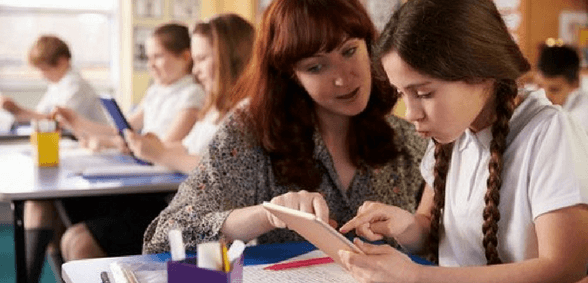
The BBC has reported that thousands of pupils in Northern Ireland are part of a new shared education scheme – one which is proving, for the most part, successful
Around 60,000 pupils across 580 schools are taking part in a shared education project in Northern Ireland, encouraging them to engage and learn with people from different backgrounds.
About £50m has been made available to fund the projects.
While the scheme has proven popular, some schools involved are reluctant to ‘address issues that could be regarded as sensitive or controversial’, according to an Education and Training Inspectorate (ETI) report.
The project differs from integrated education where pupils from Catholic, Protestant and other backgrounds are educated together in the same school.
For example, Seaview Primary School in north Belfast has been in partnership with St Patrick’s Primary School in the New Lodge area for three years. Seaview’s principal, Corinne Latham, said that working together helps pupils explore their similarities and differences.
“The children from St Patrick’s will come across to our school after a series of electronic exchanges,” she said.
“They use Skype and Facetime in the classroom and meet new friends, albeit virtually, but then they have the experience of coming into each others schools.
“So, in my school, it’s quite regular to see children with a St Patrick’s uniform walking the corridors just as it is to see the Seaview children in St Patrick’s.
“Not only do they meet new friends but they’re learning that the main difference they have is actually their school uniform – they are the same people with unique personalities but different types of identity.”
The ETI evaluation said that ‘through learning with others, the pupils developed positive attitudes, including empathy, respect and inclusion’.
‘When partnerships explored sensitive and controversial issues, such as aspects of history, the learning was deeper than in other situations,’ it said.
However, the report also said that a small number of partnerships had faced community opposition to shared education.
‘Not all partnerships were at a stage in their journey where they felt able to address issues that could be regarded as sensitive or controversial,’ it added.
‘While most teachers cite the benefits of shared education experiences on pupils, partnerships report that measuring pupils’ attitudinal change remains a challenge.’
Don’t forget to follow us on Twitter, like us on Facebook, or connect with us on LinkedIn!

Be the first to comment